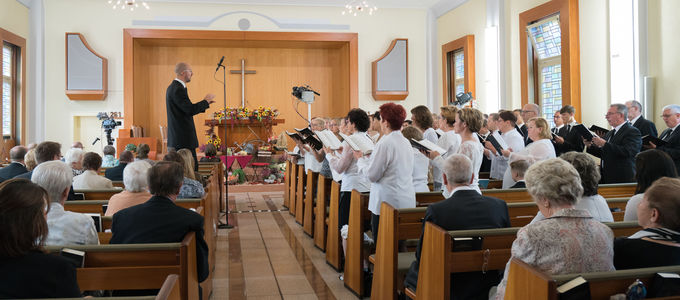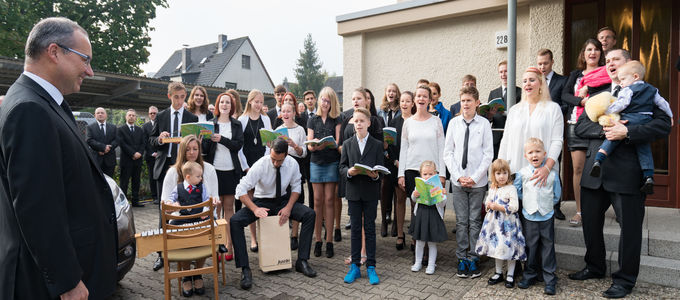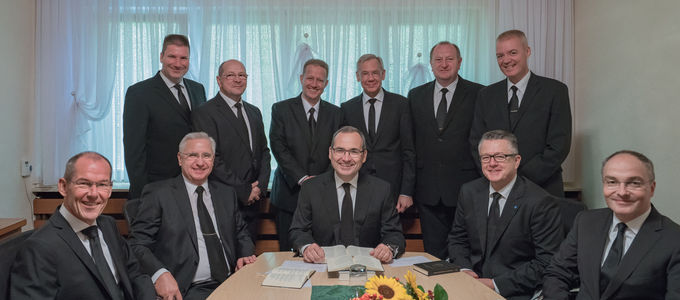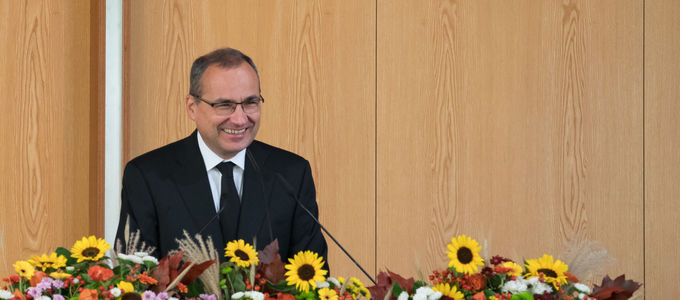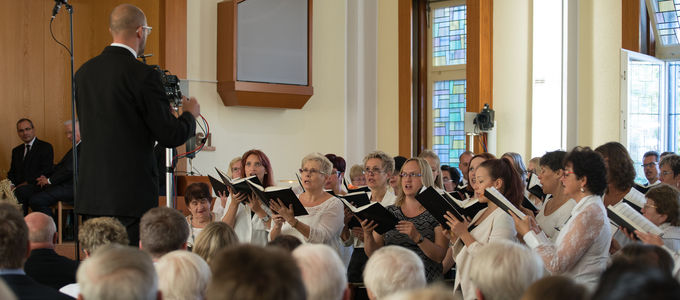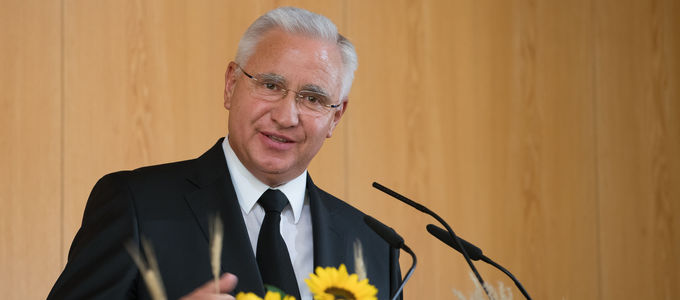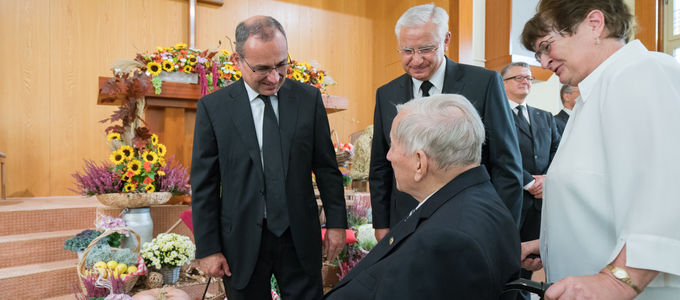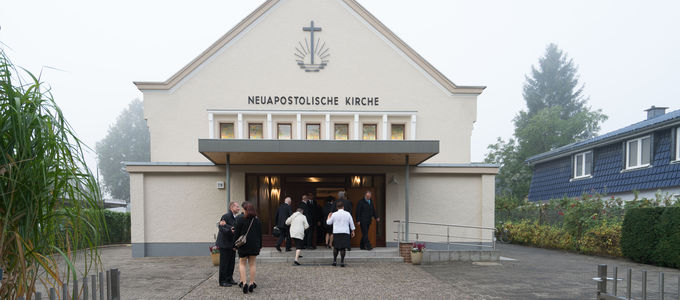
Recognizing and appreciating the gift, sharing it with the giver and with others. “We actually celebrate the feast of Thanksgiving every Sunday.” Thoughts from a divine service by the Chief Apostle.
“Who gives food to all flesh, for His mercy endures forever. Oh, give thanks to the God of heaven! For His mercy endures forever.” This was the Bible text Chief Apostle Jean-Luc Schneider used on 2 October 2016 in Berlin (Germany). Over 7,700 believers attended this service, either directly or in one of the 69 congregations in the region that received a video transmission.
Why celebrate Thanksgiving? This was the opening question. The answer: God needs neither gratitude nor flattery. In fact, the Sabbath was made for man: “God wants to bless us more. He wants to strengthen our faith and our trust in Him, and wants to make our joy even greater.” By looking at both the natural as well as the spiritual world, the Chief Apostle explained how a person’s own gratitude can benefit him.
In earthly life
At first there is the profession of our faith: “God created everything. He gave us life, He gives us our food.” This results in joy: “We need to be aware of what we have in our earthly lives and rejoice about it. Let us not always be sad about what we lack, but really be glad about the things we have and appreciate and enjoy their value.” This requires humility, he said. “There are people who are far better than I am. And they do not possess what I possess. I have not earned any of it. It is all grace.”
“Now we are coming to the actual meaning of gratitude,” the Chief Apostle continued. This is demonstrated in two ways, he said: “Because we recognize and appreciate these gifts, we give part of what we have received back to the giver to thank him—whether in the form of time, energy, health, strength, or money.” And because we have received something from God, we share it with our neighbour, the Chief Apostle continued. “That is a firm component of the Christian faith.”
“When we experience that everything comes from God, that it is grace, then we can also trust Him.” That does not mean, the Chief Apostle said, that we do not need to worry about our earthly lives. But earthly concerns “must never interfere with our relationship to God”.
In spiritual life
“God not only created us as humans, but also gave us a soul,” Chief Apostle Schneider continued. “I am so glad that my God has revealed Himself to me in Jesus Christ.” Because that shows that He is a God of love, of nearness, of grace, and patience. “Let us appreciate the value of all that God has given us. We deserve none of it. There are so many people who are far better believers than we are, who are objectively better than we in the way they live their lives and in their relationship to their neighbour.”
Gratitude to God comes to expression particularly in Holy Communion, the Chief Apostle said. “In this respect, we celebrate Thanksgiving every Sunday, in every divine service.” Sacrifice is another way to express gratitude: “We do without all those things that do not please God.” And finally: “What we have—the gospel, the glad tidings—we gladly share with our neighbour.”
Anyone who is aware of this and acts on it, professes his trust in God: “God sowed a seed, Jesus Christ. He sowed His gospel, He sent the Holy Spirit, He sent the Apostles. Let us not worry unnecessarily. This work will be completed.”






